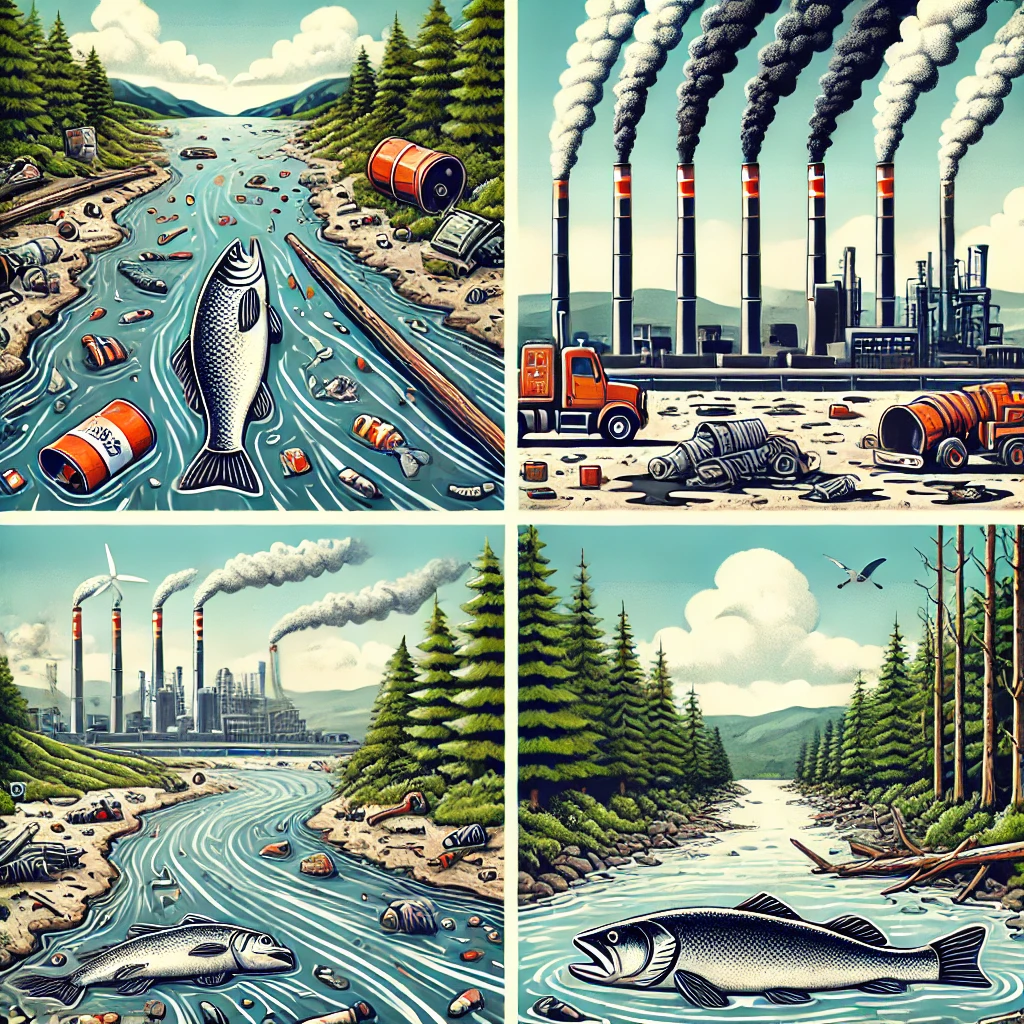 |
Pollution significantly impacts the environment, affecting air, water, and land ecosystems. Air pollution, from industrial emissions and vehicle exhaust, leads to respiratory issues in humans and animals, and contributes to climate change. Water pollution, caused by chemicals, waste, and plastics, harms aquatic life, disrupts ecosystems, and contaminates drinking water. Land pollution, from landfill waste and agricultural chemicals, degrades soil quality and affects plant growth. Pollution also harms wildlife, destroys habitats, and reduces biodiversity, highlighting the urgent need for sustainable practices and environmental protection. |
How does air pollution affect health? It causes respiratory problems, cardiovascular diseases, and exacerbates allergies.
What are the effects of water pollution? It harms aquatic life, contaminates drinking water, and disrupts ecosystems.
How does land pollution impact the environment? It degrades soil quality, affects plant growth, and contaminates the food chain.
Why is reducing pollution important? To protect ecosystems, ensure clean air and water, and maintain biodiversity.
What can individuals do to reduce pollution? Reduce, reuse, recycle, conserve energy, and support sustainable practices.
How do industrial activities contribute to pollution? They release pollutants into the air, water, and soil through emissions and waste.
#EnvironmentalImpact #PollutionEffects #SustainablePractices #ProtectThePlanet
Related words: pollution, environmental impact, air pollution, water pollution, land pollution, ecosystem damage, sustainability.